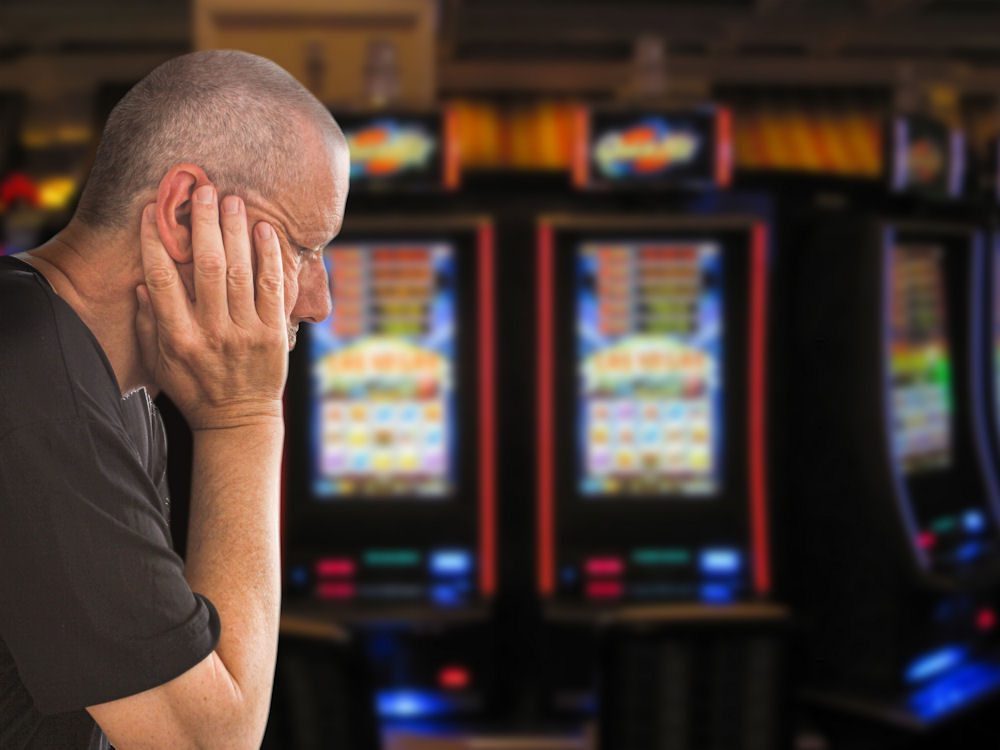In the world of gambling addiction, the lie becomes a shield, a cloak, an accomplice. As the walls of reality close in, the gambling addict clings to a web of lies; they craft a world of illusion where they are not problem gamblers but merely a victim of a streak of bad luck. At Northern Illinois Recovery Center, our aim is to shed light on the harsh realities hidden beneath these illusions. Additionally, we want to discuss how understanding these lies can be the first step towards recovery.
The lies that gambling addicts tell themselves are all too common. Oftentimes, they try to convince themselves and others that they have control over their gambling habits. However, the truth is that addiction has taken over, and the addict has lost the ability to stop on their own. This is why these lies are imperative to recognize and strike at the source.
Unfortunately, alcoholism and gambling can have a negative impact on many people’s lives. If you are dealing with addiction, whether it be to substances or gambling, please feel free to reach out to us today!
What is a Compulsive Gambler?

A compulsive gambler is an individual who is unable to resist the urge to gamble. This impulse is so overpowering that the person’s life is negatively impacted. Their behavior often leads to serious financial, relational, and emotional distress. Despite these consequences and the desire to quit, a compulsive gambler is caught in a cycle of repeated betting and losses. This aggravates the compulsion, creating a vicious cycle of addiction.
Also known as gambling addiction or gambling disorder, compulsive gambling has serious consequences on a person’s mental health and their relationships. Unlike casual gamblers, those with a gambling addiction are often consumed by the pursuit of wins, unable to quit regardless of how much they lose. This persistent, compulsive behavior can lead to significant financial, social, and psychological difficulties.
What are the Signs of Compulsive Gambling?
Recognizing the signs of compulsive gambling is crucial for early intervention and treatment. These signs may include the following:
- An increasing preoccupation with gambling
- Needing to gamble with increasing amounts of money to achieve the desired excitement
- Repeated unsuccessful efforts to control or stop gambling
- Restlessness or irritability when attempting to cut down on gambling
- Jeopardizing or losing significant relationships, jobs, or educational opportunities
- Escaping problems or to relieve feelings of helplessness, guilt, anxiety, or depression
Gambling addiction is a serious problem that affects not only the individual but also their loved ones and the community as a whole. It can lead to financial difficulties, legal troubles, and strained relationships. Gambling is not just a harmless form of entertainment; it can become a detrimental behavior if left unchecked.
In addition to the signs mentioned above, other red flags may indicate a gambling addiction. These include using gambling as a coping mechanism for other issues, neglecting responsibilities, and lying about the extent of one’s gambling.
Why are Compulsive Gamblers Driven by Lying?
Compulsive gamblers often resort to lying as a means to hide their gambling habits and the associated consequences. This behavior is primarily driven by the fear of judgment and the desire to avoid confrontation or disappointment from loved ones; it’s also driven by a deep-seated denial about the severity of their addiction. Lying becomes a tool to sustain their gambling activities without interference, continuing the cycle of addiction.
What are the 12 Common Lies Told by Gambler Addicts?
There are twelve lies those addicted to gambling tell themselves and others; these include the following:
- “I don’t have a gambling problem”
- “I can stop whenever I want”
- “I’m only gambling with my own money”
- “I’m going to win big soon”
- “I need to gamble to relieve my stress”
- “I don’t gamble every day, so it’s not a problem”
- “Gambling is my only hobby”
- “I can afford to lose”
- “My gambling doesn’t hurt anyone”
- “I was just unlucky today”
- “I’ll pay back what I owe when I win big”
- “I’m not like other gamblers”
Denial or rationalization of addiction, particularly among gambling addicts, is a common psychological defense mechanism. It allows the individuals to avoid confronting the severity and repercussions of their compulsive behavior. They may deny their gambling problem outright, or rationalize it saying they have it under control. They might also say they’re doing it just to blow off steam. This self-deception helps maintain their habit and further blinds them to the negative impact it’s having on their life and relationships.
Gambling addicts often believe they have control over their addiction due to a cognitive distortion known as the ‘illusion of control’. This phenomenon convinces them that they can influence the outcome of inherently unpredictable events. This includes items such as slot machines or roulette spins, through skill or strategy. Additionally, intermittent wins can reinforce this illusion and make quitting difficult.
For gambling addicts, the compulsion to gamble often overpowers rational thought processes. They become engrossed in the immediate thrill and potential for large wins, which blinds them to the financial consequences of gambling. Their addiction distorts their perception of reality, making them overly optimistic about outcomes; this leads them to underestimate the severe financial impact.
Gambling addicts often fall prey to cognitive distortions that fuel their belief in eventual success. The most common is the ‘gambler’s fallacy,’ where they believe a string of losses increases the chance of an impending win; they believe this even though each gamble is independent of the others. They may also succumb to ‘illusory control,’ perceiving their skills, rituals, or strategies to influence the game’s outcome. This false sense of control and belief in their luck can lure them deeper into the addiction.
Gambling addicts often justify their actions as coping mechanisms due to a range of psychological factors. For many, gambling can serve as an escape from the stresses and difficulties of daily life. It may provide temporary relief from negative emotions such as anxiety, depression, loneliness, or boredom. The potential thrill of winning can also produce a surge of dopamine, which can be highly addictive. It is important to understand, however, that such justifications do not alleviate the destructive impacts of gambling addiction.
Gambling addicts often misunderstand their addiction due to the complex and deceptive nature of the problem. Unlike substance abuse, gambling addiction is a behavioral disorder that induces a high through the thrill and anticipation of potential rewards. This absence of a physical substance leads many addicts to deny their problem. In these circumstances, they’ll attribute their behavior to a lack of willpower or a temporary phase rather than an addiction. Additionally, societal misconceptions that label addictive gambling as a habit rather than a disease contribute further to this misunderstanding.
Gambling addiction, like other forms of addiction, is a complex disorder that goes beyond simply finding a “healthier hobby.” It’s often associated with an intense rush or euphoric feeling which the individual becomes reliant on; this makes it hard to replace with other activities. Gambling often arises from larger psychological or emotional issues such as depression, anxiety, or stress. Overcoming it typically requires professional help and support to address underlying issues and develop healthier coping mechanisms.
Gambling addicts often underestimate financial loss due to flawed beliefs about the nature of gambling and the probability of winning. This is a phenomenon known as ‘gambler’s fallacy,’ where individuals mistakenly believe they can predict an outcome based on previous results. They may also harbor illusions of control, thinking they can influence a game’s outcome through skill or strategy. These factors contribute to an underestimation of financial loss, leading to persistent gambling behaviors despite substantial monetary setbacks.
Many gambling addicts perceive their struggles as a string of bad luck rather than recognizing the existence of an addiction. This denial is a common defense mechanism that helps them cope with the negative consequences linked with their behavior. They tend to attribute their losses to external factors rather than admitting to their addiction. This is because recognizing an addiction requires acknowledging personal failure and necessitates a difficult journey towards recovery. This distorted perception helps them maintain the illusion of control and the hope that their luck will eventually turn around.
Gambling addiction can often be cyclical due to the combination of psychological, emotional, and behavioral factors. The thrill of potential winnings can release dopamine, a neurotransmitter associated with feelings of pleasure and reward, in the brain. When this feeling subsides, individuals may be compelled to gamble again to recreate it, thus beginning a cycle of habitual gambling.
Gambling addicts often remain in denial about their addiction due to several factors. Firstly, they may perceive gambling as a recreational activity and not an addiction; they may equate their behavior to that of a social drinker or casual gamer. Additionally, the illusion of control often blinds them to the reality of their situation. The intermittent rewards in gambling can also reinforce their behavior and make it seem less problematic than it truly is.
There are Programs Available to Help at Northern Illinois Recovery Center

Gambling addiction is not easy to overcome. At Northern Illinois Recovery Center, we believe in taking an individualized approach to help those suffering from compulsive gambling; we even offer gambling addiction therapy options. If you or a loved one would like to find out more, you can contact us here.




